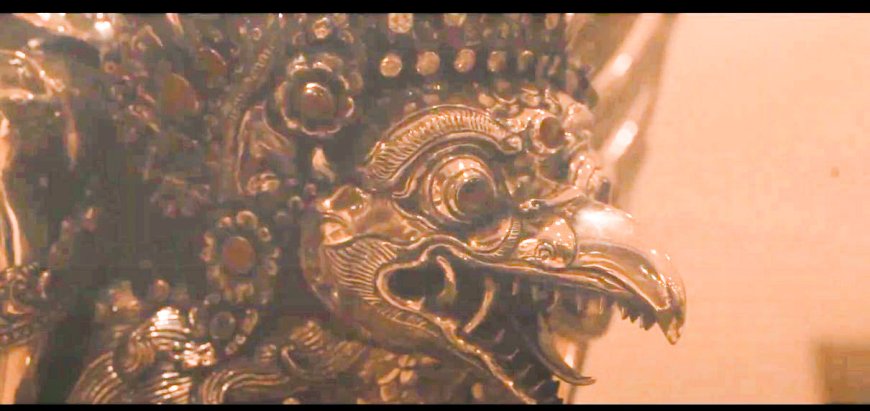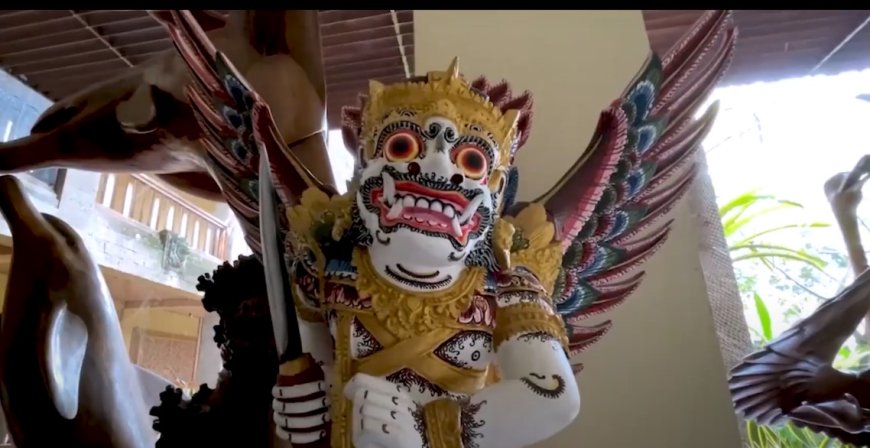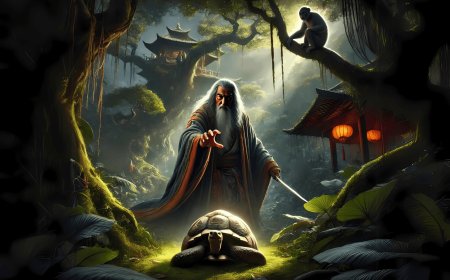The Story of Garuda's Devotion To His Mother
Garuda is one of the mythological creatures in Hinduism. With its majestic and large body, along with wings, Garuda commands great respect and reverence. Garuda also possesses a virtuous nature characterized by dedication and immense affection towards its mother, to the extent that it is willing to do anything for her.

Garuda is a mythical creature that, in Hindu religious beliefs, is known for its profound wisdom. With a majestic and robust physique, along with wings, Garuda commands great respect and reverence. Moreover, Garuda is renowned for its courage and unwavering devotion to its beloved mother.

The Form of Garuda (Photo Source : Editorial Collection)
In ancient times, in a mysterious land, there lived a wise sage known as Rsi Kasyapa. Rsi Kasyapa was highly knowledgeable and filled with wisdom. However, his peaceful and wise life was intertwined with a captivating tale of dedication, loyalty, and sacrifice.
Rsi Kasyapa formed unions with 14 daughters of Sang Hyang Daksha, a Creator God. Two of Rsi Kasyapa's prominent wives were Kadru and Winata. Despite being sisters, their characteristics and personalities were starkly different. Kadru was known for her cunning, envy, and jealousy, while Winata was a gentle, kind-hearted soul.
One day, Kadru and Winata were overcome with a strong desire to have offspring, even though they had been married to Rsi Kasyapa for quite some time. They approached Rsi Kasyapa and requested to have children. Eventually, Rsi Kasyapa agreed and gave each of them two eggs. However, Kadru was not satisfied and asked for more eggs. Rsi Kasyapa granted her 1000 eggs, while Winata was content with what she had received.
The two sisters diligently cared for the eggs with hope, but time passed without any signs of hatching. Eventually, Kadru prayed to the gods and the universe to hatch the eggs. Kadru's prayer was answered, and the eggs hatched into serpents with gem-studded crowns on their heads.
Feeling jealous, Winata decided to break one of her eggs. It hatched into a being with the head of a bird-like Garuda without legs, named Aruna. Aruna left his mother but gave a prophecy that only his future sibling would free him. Winata regretted her actions and waited for the birth of her second child.
Kadru began to grow weary of caring for her offspring and made a cunning bet with Winata concerning the color of Ucchaisrawa, a divine horse. With conviction, Winata answered white, while Kadru claimed it was black. This triggered a tragic event in which Kadru's children turned the Ucchaisrawa horse black with their venom.
Kadru then ordered Winata to serve her and care for all her children. The days that Winata spent were filled with misery and hardship. However, the only remaining egg belonging to Winata eventually hatched into a being with a bird-like head and wings. It was Garuda, who grew larger, more robust, and exceedingly powerful. When he heard his mother's cries, Garuda immediately approached her.

The Garuda ( Source Photo : Editorial Collection)
Winata was liberated from slavery, but Garuda, the bird-headed child, had to seek the Tirtha Amertha to fully free his mother. During his journey, he unintentionally consumed a Brahmana, causing his throat to become hot. The Brahmana turned out to be Rsi Kasyapa, Garuda's father.
Garuda then found the Tirtha Amertha with the guidance of his father, but Lord Vishnu appeared and imposed a condition: if his mother were to be released, Garuda must dedicate himself to Lord Vishnu.
Garuda confronted Lord Indra, who sought to claim the Tirtha Amertha for the gods. After a fierce battle, Garuda defeated Lord Indra. Finally, he bestowed the Tirtha Amertha upon Kadru, and his mother was freed. In his devotion to Lord Vishnu, Garuda Wisnu Kencana was born.
The tale of Garuda Wisnu Kencana exemplifies extraordinary devotion to parents, strength, and heroism. He is one of the revered mythological beings in Hinduism, symbolizing loyalty and devotion.




























































